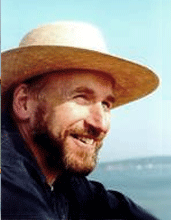I am an observational biogeochemist with a main focus on the factors that control the downward flux of material from the top of the ocean into the interior and from there to the seabed. Amongst other approaches this involves long term deployments of sediment traps deep in the water column (eg 3000m). A crucial factor is the export flux of material from the upper mixed layer and we have developed a drifting sediment trap, PELAGRA, which makes direct measurements of this flux, a rate which is notoriously difficult to measure.
In order to understand the factors that determine the quantity and quality of material mediating this flux, continuous observations are required on a wide range of properties and processes occurring in the upper part of the water column. As a result of this conviction I am heavily involved in the establishment and management of a network of observatories around Europe. I Chair the Assembly of Members of the European Research Infrastructure Consortium EMSO and I was, until it finished last year, coordinator of the FixO3 network, a 4 year EU programme which integrated European fixed point observatories. I am a founding member and Executive member of OceaanSITES, the International body which coordinates the global array of over 100 observatories. In addition I have responsibility for the sustained observatory on the Porcupine Abyssal Plain, the so called PAP site.
I have increasing interest in issues of direct societal concern and, in particular, the ways in which the oceans may be encouraged to remove anthropogenic carbon dioxide from the atmosphere, so called geoengineering options. I sit on the GESAMP committee on this topic. I also have a significant interest in pollutants such as plastics which may prove to have a damaging effect on ecosystem structure and function and have recently established and lead the Microplastic Research Team at NOC.
